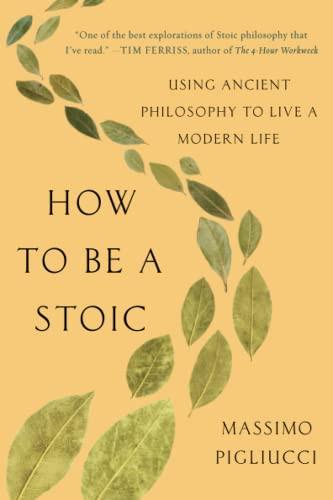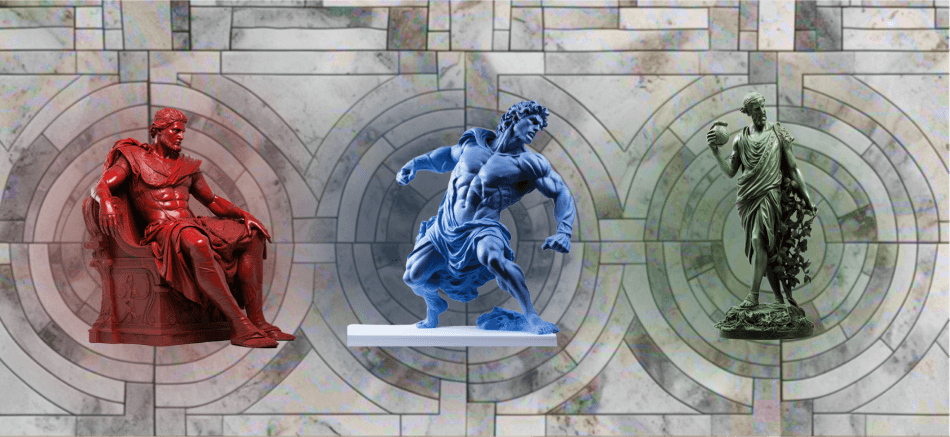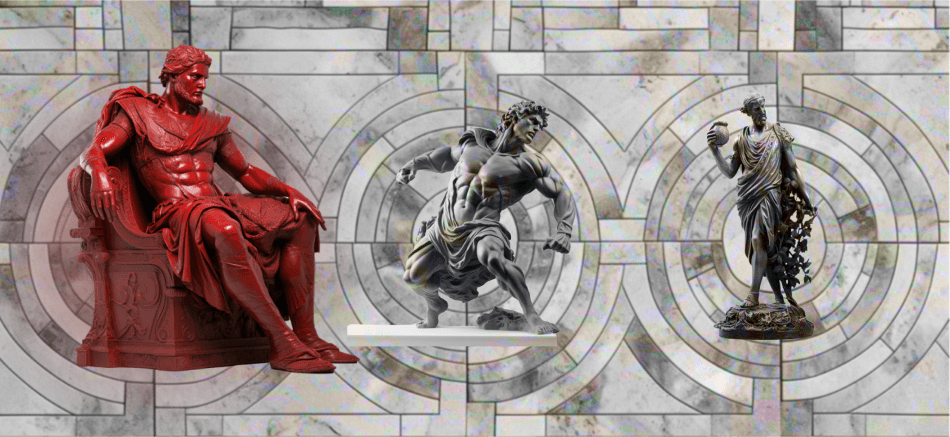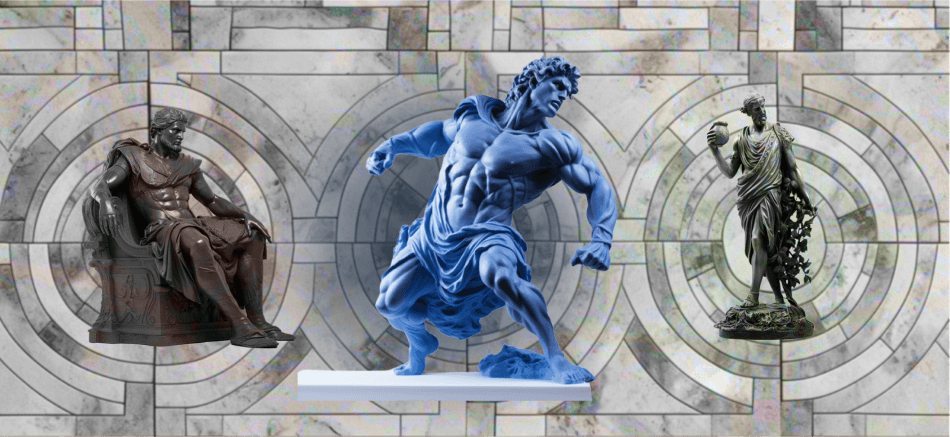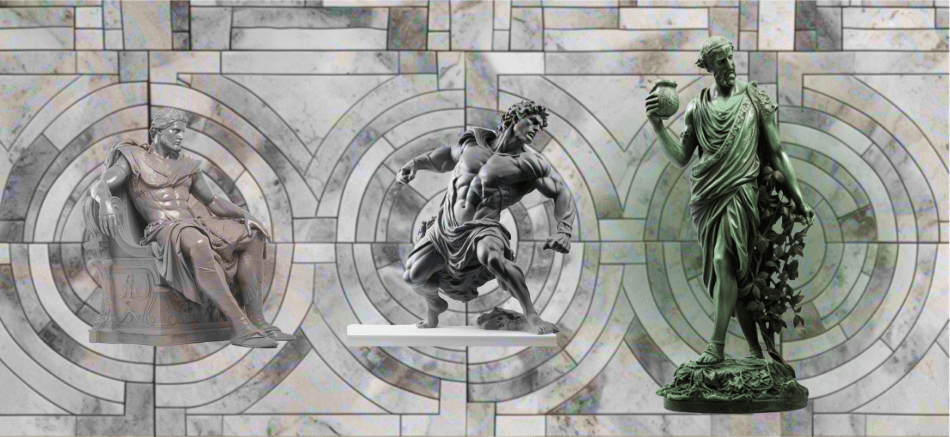Finley B.'s Key Ideas from How to Be a Stoic
by Massimo Pigliucci
Ideas, facts & insights covering these topics:
9 ideas
·95.8K reads
496
13
Explore the World's Best Ideas
Join today and uncover 100+ curated journeys from 50+ topics. Unlock access to our mobile app with extensive features.
What is Stoicism?
Stoicism is a philosophy of life that emphasizes the importance of virtue, reason, and living in accordance with nature. It was founded in ancient Greece by Zeno of Citium around 300 BC. It became popular in the Roman Empire when many aristocrats adopted it. Emperor Marcus Aurelius is the most famous disciple.
Stoicism is seeing a renaissance with many modern people being drawn to its teachings as a way to cope with our he adversity of everyday life.
1.76K
16.5K reads
The Dichotomy of Control
The dichotomy of control is a Stoic concept that states that there are two things we can control in life:
- our thoughts and ...
- our actions
.... and nothing else. Everything else is outside of our control.
The dichotomy of control can help us to focus on the things that are important and to let go of the things that we can't control. It can help us to develop a sense of equanimity, or calmness, in the face of adversity.
2.46K
13.3K reads
"The dichotomy of control is a simple but powerful idea that can help us to live more resilient and less stressed lives. It is based on the recognition that there are two types of things in the world: those that we can control and those that we cannot.
The things that we can control are our own thoughts, our own actions, and our own goals. The things that we cannot control are everything else."
MASSIMO PIGLIUCCI
1.72K
10.3K reads
The Stoic Virtues
4 core virtues that Stoics believe are essential for living a good life:
- Wisdom: The ability to see the world clearly and to understand what is truly important. Stoics believe that wisdom is the foundation of all the other virtues.
- Courage: The ability to face challenges and to do what is right, even when it is difficult. Stoics believe that courage is essential for living a fulfilling life.
- Temperance: The ability to control our desires and live in moderation. Temperance is essential for living a harmonious life.
- Justice: The ability to act fairly and to treat others with respect.
2.22K
10.9K reads
Memento Mori
Memento mori is a reminder of death. The phrase is Latin for "remember that you will die." Stoics used this phrase as a reminder of the impermanence of life & the importance of living each day to 100%.
- Death is inevitable. Stoics believe that death is a natural part of life and that it is something that we should all accept.
- Death can be a motivating factor. Stoics believed that if we knew that our time was limited, we would be more likely to focus on what is truly important.
- Death can be a source of peace. Stoics also believed that the awareness of death could bring us peace of mind.
2.09K
9.72K reads
The Three Stoic Disciplines
A good character cannot be developed without a proper understanding and implementation of all three Stoic disciplines, which are:
- The discipline of desire (also referred to as Stoic acceptance)
- The discipline of action (known also as Stoic philanthropy, in the sense of concern for others)
- The discipline of assent (or Stoic mindfulness)
1.75K
9.56K reads
The Discipline of Desire
The discipline of desire tells us what is, and is not, proper to want. This, in turn, derives from the fact that some things are in our power and others are not.
Two of the four Stoic virtues are pertinent to regulating desire:
- Courage (to face facts and act accordingly.)
- Temperance (to rein in our desires and make them commensurate with what is achievable.)
1.68K
8.67K reads
The Discipline of Action
The discipline of action tells us how to behave in the world. It is the result of proper understanding of ethics, the study of how to live our lives, and it draws on the virtue of justice.
1.61K
8.05K reads
The Discipline of Assent
The discipline of assent tells us how to react to situations, in the sense of either giving our assent to our initial impressions of a situation or withdrawing it.
This discipline is arrived at via the study of logic – what is and is not reasonable to think – and requires the virtue of practical wisdom.
1.65K
8.65K reads
IDEAS CURATED BY
CURATOR'S NOTE
Stoicism is everywhere. These ideas are a good start.
“
Curious about different takes? Check out our How to Be a Stoic Summary book page to explore multiple unique summaries written by Deepstash users.
Different Perspectives Curated by Others from How to Be a Stoic
Curious about different takes? Check out our book page to explore multiple unique summaries written by Deepstash curators:
11 ideas
Anup Chouhan's Key Ideas from How to Be a Stoic
Massimo Pigliucci
1 idea
Joel Tay's Key Ideas from How to Be a Stoic
Massimo Pigliucci
19 ideas
Talha Mumtaz ✔️'s Key Ideas from How to Be a Stoic
Massimo Pigliucci
Discover Key Ideas from Books on Similar Topics
Read & Learn
20x Faster
without
deepstash
with
deepstash
with
deepstash
Personalized microlearning
—
100+ Learning Journeys
—
Access to 200,000+ ideas
—
Access to the mobile app
—
Unlimited idea saving
—
—
Unlimited history
—
—
Unlimited listening to ideas
—
—
Downloading & offline access
—
—
Supercharge your mind with one idea per day
Enter your email and spend 1 minute every day to learn something new.
I agree to receive email updates
